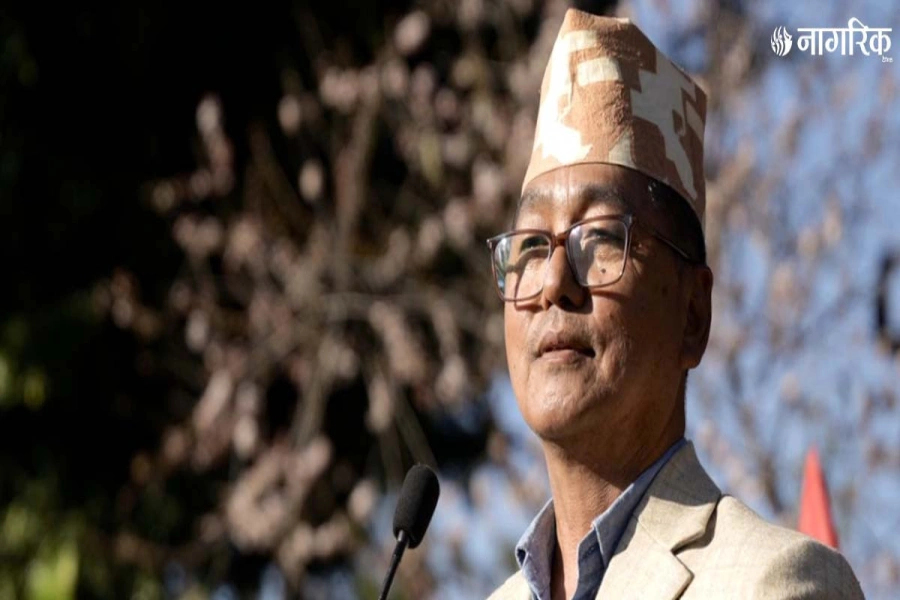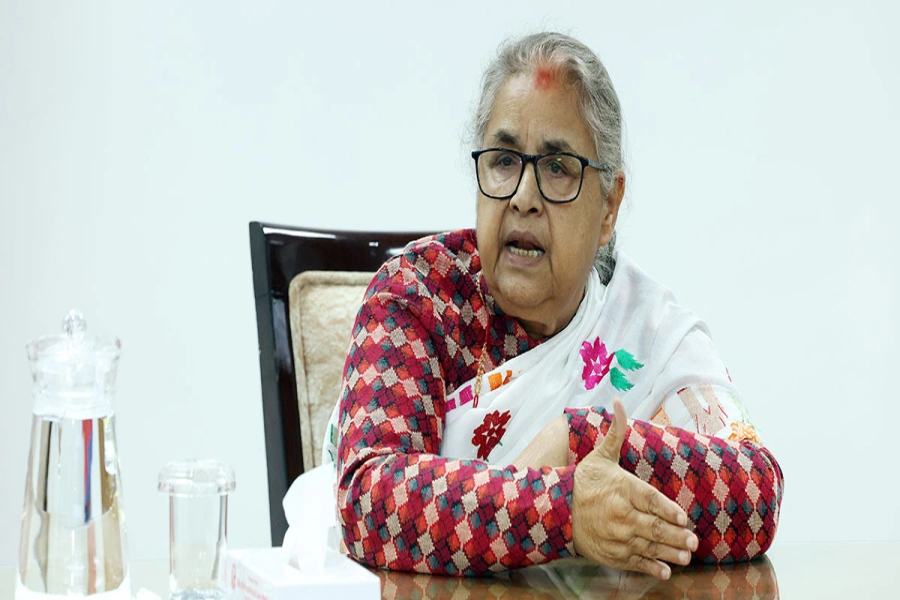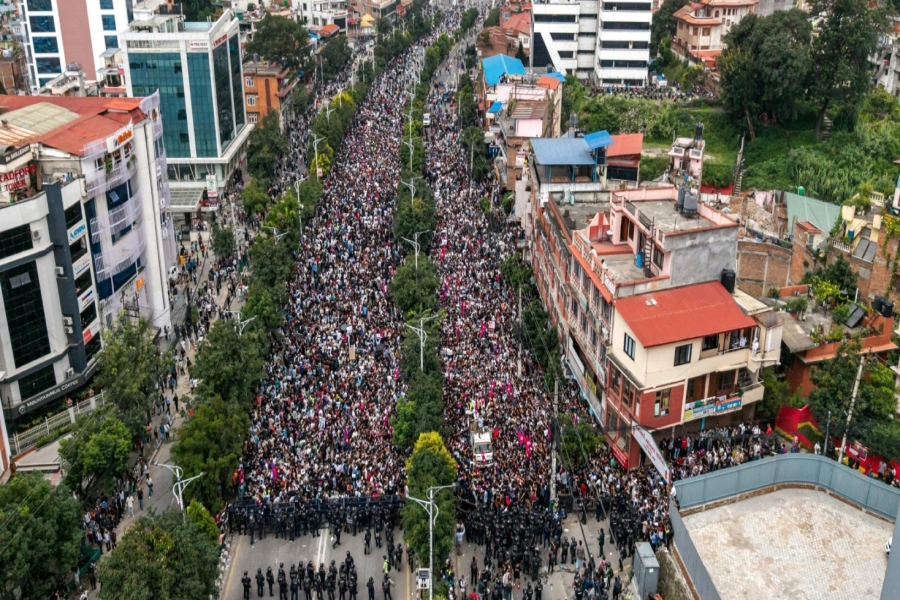KATHMANDU, Aug 5: The Supreme Court (SC) has mandated the government to amend the gender identity details of a transgender woman, Ruksana Kapali, to reflect her self-perception as a woman. According to the SC’s ruling, gender identity, according to one's self-perception, falls under the right of individuality and self-determination.
A joint bench of Chief Justices Bishowambhar Prasad Shrestha and Kumar Chudal issued the verdict on November 6, 2023, and the full text was issued recently. The court ordered revising Kapali's personal records from male to female, recognizing her gender identity as an inherent right.
The SC has interpreted the provisions of the right to education, the constitution, and international human rights laws, to which Nepal is a party, in this case. The judgment explained that transgender people should not be discriminated against based on their identity. A transgender person is someone whose gender identity differs from the gender assigned at birth. A transgender woman is someone identified as a boy child at birth. Article 18 (2) of the Constitution states that there shall be no discrimination on the basis of different gender identity and sexual orientation.
Article 18 mentions that the term ‘other’ includes different sexual orientations. The petitioner filed a writ petition in the SC stating that she is a transgender woman and her gender identity was not reflected in her educational certificates. She claimed that she was deprived of higher education due to Tribhuvan University's refusal to register her submitted form. In her writ petition, she mentioned that the university rejected her form because she was a transgender woman, and her self-esteem was hurt as documents such as citizenship and educational certificates could not be amended according to her gender identity.
#Sexploration Episode 3 Discussion on Gender Markers

The SC has stated that it is possible to update paper certificates that disclose personal details in accordance with the law to retain the correct gender identity. The apex court emphasized that personal privacy will be maintained in this process. "To protect the right to live with dignity and the right to equality, it is necessary to keep confidential the details of the birth certificate, first name, and sexuality in the personal information disclosure certificates made accordingly," said the apex court.
As the petitioner is a transgender woman, she faced unreserved treatment from service providers when receiving state-provided goods and services. The providers even refused services by citing various legal entanglements, given that the state-issued documents based on the name and gender identity assigned at birth were different without her knowledge. According to the SC, it is evident from the conduct described in the writ petition that some personal and public relation details of citizens are directly connected with the services and facilities provided by the state. Updating and documenting these details is essential in the state system for promoting a decent standard of living.
The Supreme Court explained that the state has the obligation to maintain the confidentiality of all past and present records of citizens according to the law. It is possible to manage these records while ensuring their confidentiality. The petitioner mentioned that her right to live with dignity was violated due to the behavior she experienced.
Clause 1 of Article 31 of the Constitution states that every citizen has the right to access basic education. Sub-section 2 adds that every citizen has the right to receive compulsory and free education up to the basic level and free education up to the secondary level. Similarly, Article 26 of the Universal Declaration of Human Rights 1948 states that every person has the right to education, which should be free at least at the elementary and basic levels, with primary education being mandatory. The declaration also emphasizes the availability and accessibility of technical and vocational education for all.
"If the enjoyment of rights is done in a discriminatory and undignified manner, those rights have no meaning or justification," stated the apex court. The SC has already set a precedent in a case involving Sunil Babu Pant, where it was determined that laws preventing individuals from enjoying their fundamental rights and freedom while maintaining their identity are discriminatory. The court emphasized that it is not relevant for others, including individuals, societies, states, or laws, to determine a person's biological sex. Any system that harms people's freedom, dignity, and self-esteem is unacceptable from a human rights perspective.
According to SC, it is a person's right to enjoy the same rights as others according to the constitution and international human rights laws. It is the state's responsibility to create legal and structural arrangements to ensure this. Article 10 of the Constitution states that no Nepali citizen shall be deprived of the right to obtain citizenship. Article 12 has a provision that a person who obtains citizenship of Nepal based on descent can get a certificate of citizenship with gender identity from the name of their mother or father. Article 42, under the right of social justice, grants gender and sexual minorities the right to participate in state bodies based on the principle of proportionality.
Clause 1 of Article 18 states, "All citizens shall be equal before the law. No one shall be denied the equal protection of the law." According to the SC, denying the amendment of a citizenship certificate based on one's biological sex, rather than their true gender identity, is akin to refusing to acknowledge the existence of a person from a gender minority community.
The court emphasized that the right to amend a citizenship certificate obtained based on physical and biological attributes should be protected by law, as gender identity may be recognized and expressed later in life.
Regarding the right to privacy, the SC stated that privacy includes matters related to a person's physical and mental condition, biological or genetic identity, gender identity, and sexuality, affirming the right to maintain the confidentiality of such personal details.



























-1200x560-1765267769.webp)










